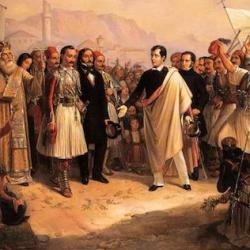In his dense 1967 monograph on Homer and the Bible , Cyrus Gordon argued that the Iliad was written not for the sake of art only but to inspire the imagination of a Greek nation: “it does not divide Greek from Greek. The Trojans and their allies are treated with as much decorum and honor as the Achaeans and their allies. Moreover, in the Catalogue of Ships and in scattered descriptions of heroes (on both sides) and their genealogies, satisfaction is given to all the elements of the Hellenic world: in Greece, Asia Minor, and the islands. Pilgrims from widely scattered areas, attending the festivals where the Iliad was read, could listen with pride to the glories of their own epic hero, no matter whether they were Ionian, Cretan, or Peloponnesian. The Iliad tells how once the Greek world had participated in the glorious and manly Trojan War; listening to the Iliad could only inspire the entire Greek people with heroic sentiments and the vision of nationhood.”
The Pentateuch and especially the Patriarchal narratives, he suggests, had the same function for Israel, as Ugaritic myth did for Ugarit. He concludes, “Israel, Greece and Ugarit had texts for the great problem in that part of the world: national union.” Yet, he goes on to indicate how different the Pentateuch is from the other epics: “It is infinitely more many-sided than any other national epic of any age. But perhaps its most distinctive feature is its universal framework. Genesis leads up to the Patriarchs with the story of the Creation and the peoples of the world, showing how Israel fits into the broad scheme of things.” Even in form of its “national epic,” Israel is evidently not merely a nation for itself, but a nation for the life of the world.











